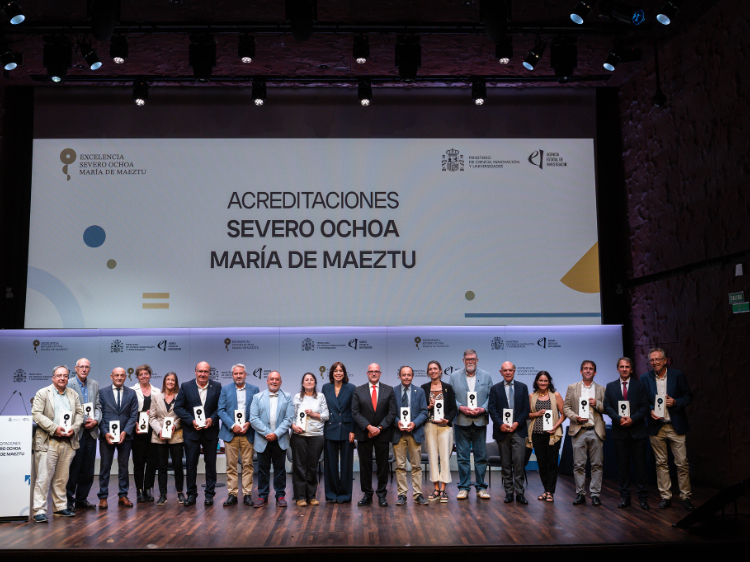
The Ministry of Science, Innovation and Universities awards the accreditation that distinguishes the best research centres in Spain. The distinction recognises the impact and international relevance of their work in neurosciences, chemistry, physics and food technology and involves an investment of four million euros per centre.
The Minister of Science, Innovation and Universities, Diana Morant, presented yesterday in Madrid the awards that recognise the best research centres in Spain. These are accreditation as Severo Ochoa Centres of Excellence or María de Maeztu Units of Excellence, a network of centres that make up the SOMMa alliance, which promotes the quality of Spanish scientific research by recognising the centres and units that stand out for the relevance and impact of their research. In the Valencia Region there are four Severo Ochoa Centres of Excellence in which the Spanish National Research Council (CSIC) participates, such as the Institute of Chemical Technology, the Institute of Neurosciences, the Institute of Agrochemistry and Food Technology and the Institute of Corpuscular Physics, both belonging to the research area of the University of Valencia Science Park, as well as the Institute of Molecular Science (ICMol) of the University of Valencia, which has been accredited as a María Maeztu Unit of Excellence.
The recognition is carried out through an annual competitive call, whose applications are evaluated by an international scientific committee according to a series of criteria such as the impact of the research on the world scientific scene, the generation of frontier knowledge, training activities and attraction of human resources at international level, collaboration with high-level research centres, and activities for the transfer and dissemination of knowledge to society.
The accreditation as a Severo Ochoa Centre of Excellence or María de Maeztu Unit of Excellence is valid for four years and represents one million euros per year for each of the centres during this period, or five hundred thousand euros per year in the case of the units. In addition to social and scientific recognition, accreditation allows priority access to other initiatives for the promotion of research.
At the event, which was held yesterday at the CaixaForum in Madrid, Morant stressed that these accreditations, which are granted by the Spanish Government through the State Research Agency (AEI), are ‘the highest recognition for centres and units of excellence and are awarded after an extremely rigorous evaluation process’. ‘It is our country's gratitude to these institutions for the impact of their research on the welfare of citizens, their contribution to the development of a competitive and innovative industry and their great capacity to attract national and international research talent,’ he said.
Institute of Molecular Science (ICMol)
The Institute of Molecular Science (ICMol) was founded in 2000 to develop competitive and high quality research in materials science using a molecular approach. In fact, ICMol is the only research centre in Spain focused exclusively on the molecular aspects of Nanoscience, with special emphasis on the study of functional molecules and materials that exhibit useful magnetic, electrical or optical properties.
In 2016, the institute was recognised by the Spanish Ministry as a María de Maeztu Unit of Excellence for a period of four years, from 2016 to 2019. In 2020, this accreditation has been renewed for another four-year period, from 2020 to 2024.

